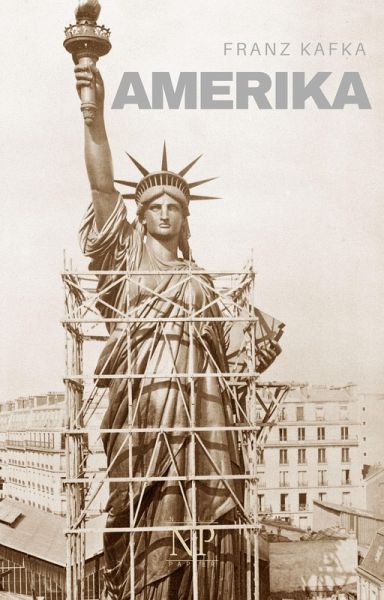

Though we can never know how Kafka planned to end the novel, Mark Harman's superb translation allows us to appreciate as closely as possible, what Kafka did commit to the page. Amerika by Franz Kafka Start Free Trial Summary Themes Questions & Answers Characters Critical Essays Characters Discussed PDF Cite Last Updated on May 6, 2015, by eNotes Editorial.

Like much of Kafka's work, Amerika remained unfinished at the time of his death. With unquenchable optimism and in the company of two comic-sinister companions, he throws himself into misadventure after misadventure, eventually landing in Oklahoma, where a career in the theater beckons. Here is the story of 17-year-old Karl Rossman, who, following a scandal involving a housemaid, is banished by his parents to America. based on a section from Kafkas titular novel in which the protagonist, Karl Rossmann. With the same expert balance of precision and nuance that marked his translation of Kafka's The Castle, the award-winning translator Mark Harman now restores the humor and particularity of language to Amerika. Martin Kippenberger: The Happy End of Franz Kafkas Amerika. They began an epistolary courtship - one conducted almost entirely by letters - with Kafka penning more than 500 letters during their five years together.A Brilliant new translation of the great writer's least Kafkaesque novel, based on a German-language text that was produced by a team of international scholars and that is more faithful to Kafka's original manuscript than anything we have had before. American Authors Wright and Faulkner The Library of America Vintage Decor Books. In 1912, at Max Brod's house, he met a woman named Felice Bauer. "I have hardly anything in common with myself and should stand very quietly in a corner, content that I can breathe." he wrote in his diary). "What have I in common with Jews?" he wrote in his diary. Amerika, unfinished novel by Franz Kafka, written between 19 and prepared for publication by Max Brod in 1927, three years after the author’s death.

At the same time, he felt alienated from - and at times repulsed by - his Jewish identity. Kafka was drawn to many aspects of Jewish culture, particularly Yiddish theater and writing. In his late twenties, Kafka became keenly interested in Judaism - or, more accurately, in exploring his contentious relationship with his religion. The bigotry and rejection he encountered because of his Jewish identity was deeply upsetting to Kafka. Though it had not yet coalesced into the horrors of the Holocaust, anti-Semitism was widespread in Eastern Europe.


 0 kommentar(er)
0 kommentar(er)
